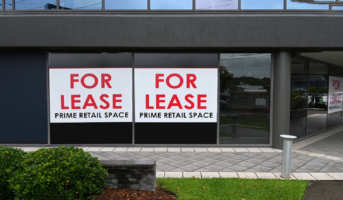India’s retail sector recorded an all-time high leasing in 2023, touching a historic level of 7.1 million square foot (msf) across eight cities, an increase of 47% YoY, according to the findings of CBRE South Asia’s report ‘India Market Monitor Q4 2023’. Despite global challenges and uncertainties, India emerged as one of the most promising consumer markets, indicating heightened retailers’ interest in new setup, expansion and upgradation of stores.
Primary leasing in newly completed malls was one of the key drivers of retail space demand in 2023, with a 30% share of overall absorption. Additionally, the total retail supply also reached a historic peak at 6 msf in 2023, over 316% YoY increase. This rise in supply can be attributed to the commencement of operations of 12 investment-grade malls located in Bangalore, Pune, Mumbai, Hyderabad, Ahmedabad, Delhi-NCR and Chennai, collectively contributing 4.9 msf of new retail space during Jul-Dec ‘23.
The retail leasing in 2023 was predominantly steered by fashion and apparel, with a 32% share in total leasing. This was largely influenced by mid-range fashion value and athleisure brands. Homeware and department stores accounted for a 17% share, followed by food and beverage share at 12%, luxury at 9% and consumer electronics at 6% share in overall leasing. In 2023, the retail sector in India saw a surge in leasing activity, with Mumbai and Pune recording 5-year high leasing at 1 and 0.8 msf, respectively. Bangalore, Ahmedabad, Delhi-NCR, Ahmedabad, Kolkata and Hyderabad witnessed steady leasing activity.
During Jul-Dec ’23 period, there was a notable increase in space uptake across tier-I cities, witnessing a 67% YoY increase, totalling to 4.2 msf. The leasing trend in Jul-Dec’ 23 saw an uptick of 43% as compared to Jan-Jun ’23 period when the leasing stood at 2.9 msf. Bangalore led the leasing activity, followed by Mumbai and Pune, contributing to nearly 64% of the total absorption in Jul-Dec ‘23. The anticipation of increased mall supply and favourable consumer spending patterns is expected to encourage expansion among both international and domestic retailers in the future. The Jul-Dec ’23 period recorded a significant increase in supply across tier I cities, showing a 389% YoY growth.
Foreign retailers continue to place their bets in India through local partnerships. Canadian lingerie retailer La Vie en Rose made its debut in India in partnership with Apparel Group India and launched its first store in Delhi-NCR in July 2023 and later expanded in Pune and Bangalore. Similarly, Rimowa, a German luxury luggage brand, entered India through its partnership with Reliance Brands and opened its first store in Mumbai. Other notable expansions by international players include French fashion and apparel brand Bugatti Fashion and the American furniture brand West Elm opening their stores in Pune, and American lingerie brand Victoria’s Secret opening stores in Hyderabad and Pune during Jul-Dec ’23 period.
Anshuman Magazine, chairman and CEO, India, Southeast Asia, Middle East and Africa, CBRE, said, “As we navigate global challenges, the resilient discretionary spending and robust retail consumption, coupled with easing inflationary pressures, is propelling retail leasing activity. In 2023, retail leasing in tier-I cities surged to 7.1 msf, surpassing the 2019 peak. Constituting around 30% of overall absorption, newly completed malls are pivotal in the total leasing momentum. Key sectors like fashion and apparel, homeware, department stores, food and beverage, entertainment and luxury are driving this growth. The luxury sector, which saw a 162% increase in 2023, shows a promising trend with the entry and expansion of international brands. This positive momentum is expected to continue, aligning with our anticipation for a similar trend in the years ahead.”
Ram Chandnani, managing director, advisory and transaction services, CBRE India, said, “As retail leasing in major tier II cities of India (Chandigarh, Jaipur, Indore, Lucknow and Kochi) surges to 1.2 msf in 2023, we witness a transformative shift led by sectors such as fashion and apparel, homeware, entertainment and hypermarkets, commanding over 70% of leasing activity. The increased demand for organised retail spaces has attracted leading developers and institutional players to these markets, evolving retail formats from vanilla stores to shopping malls, department stores, hypermarkets and dedicated entertainment zones. Notably, cities with tourism and spiritual significance are becoming focal points as retailers seize the opportunity to establish a presence, enhance brand awareness, foster customer interactions, and create immersive in-person shopping experiences. The trajectory indicates a promising future for retail expansion and innovation in these dynamic markets.”
Key retail investments in 2023
| Sector
|
Investor
|
Investee
|
Deal value (in $)
|
| Retail
|
QIA
|
Reliance Retail
|
1010 million
|
| Retail
|
ADIA
|
Reliance Retail
|
598 million
|
| E-Commerce | Undisclosed Investor | PharmEasy | 420 million |
| Retail | KKR | Reliance Retail
|
252 million |
| E-Commerce | Multiple Investors | Zetwerk Manufacturing Businesses | 118 million |
Retail leasing trends in Mumbai in 2023
Retail leasing in Mumbai hit a 5-year high by clocking 1.0 msf, a 123% YoY increase, while supply stood at 0.8 msf. In 2023, among the industry segments in Mumbai, fashion and apparel (18%), homeware and department stores (15%) and consumer electronics (15%) led the leasing activity. During the Jul-Dec’23 period, retail leasing in Mumbai stood at 0.8 msf while supply stood at 0.8 msf. Key transactions recorded in the city during Jul-Dec ‘23 were:
- Inox leasing 34,531 sqft in Jio World Plaza (Mall)
- Westside leasing 30,000 sqft in TW Gardens (High Street)
- Cinepolis leasing 26,000 sqft in Q Parc (High Street)
Retail leasing trends in Pune in 2023
Pune recorded all-time high annual leasing at 0.8 msf in 2023. The key sectors that drove absorption included fashion and apparel (41%), homeware and department stores (22%) and food and beverage (12%).
Retail leasing trends in Bangalore in 2023
Bangalore’s annual leasing in 2023 stood at 1.9 msf. The key retail categories that drove absorption included fashion and apparel (28%), homeware and department stores (19%) and entertainment (17%).
Retail leasing trends in Hyderabad in 2023
Hyderabad’s annual leasing in 2023 stood at 0.7 msf. The key retail categories that drove absorption included fashion and apparel (31%), hypermarkets (26%) and homeware and department stores (19%).
Retail leasing trends in Delhi-NCR in 2023
Delhi-NCR’s annual leasing in 2023 stood at 1.4 msf. The key retail categories that drove absorption included fashion and apparel (43%), luxury (26%) and food and beverage (9%).
Retail leasing trends in Chennai in 2023
Chennai’s annual leasing in 2023 stood at 0.6 msf. The key retail categories that drove absorption included fashion and apparel (41%), entertainment (18%) and homeware and department stores (15%).
Retail leasing trends in Kolkata in 2023
Kolkata’s annual leasing in 2023 stood at 0.1 msf. The key retail categories that drove absorption included luxury (33%), food and beverage (29%) and consumer electronics (23%).
Retail leasing trends in Ahmedabad in 2023
Ahmedabad’s annual leasing in 2023 stood at 0.5 msf. The key sectors that drove absorption included fashion and apparel (32%), homeware and department stores (23%) and food and beverage (11%).
India retail outlook 2024
- Leasing dynamics: Primary leasing is expected to remain steady, given the strong supply pipeline; secondary leasing to take cues from the escalating rentals in key malls and the pressure that may mount on consumer spending going forward.
- Luxury brand gaining traction: Luxury brands are expected to continue strengthening their footprint across various retail formats, including malls, high streets and premium standalone developments.
- Innovation and in-store experience: The retail landscape continues to be in a state of constant evolution, driven largely by innovation. Retailers strive to enhance in-store experiences through technological upgrades, consumer engagement, space redistribution, and personalised services. This is particularly evident in the burgeoning luxury market.
- Consumer spending pattern: Consumer spending and retail sales are expected to stabilise in 2024 in comparison to the previous year. Retailers across categories will need to be realistic around the expected growth in a high inflationary and cautious economic environment.
- Retailers will continue to explore tier II and other markets: Several tier-II cities and other cities of significance for spiritual tourism are likely to witness greater traction as retailers look to tap these high-potential markets to build brand awareness, increase customer engagement, and facilitate in-person shopping experiences.
| Got any questions or point of view on our article? We would love to hear from you. Write to our Editor-in-Chief Jhumur Ghosh at jhumur.ghosh1@housing.com |

Dhwani is a content management expert with over five years of professional experience. She has authored articles spanning diverse domains, including real estate, finance, business, health, taxation, education and more. Holding a Bachelor’s degree in Journalism and Mass Communication, Dhwani’s interests encompass reading and travelling. She is dedicated to staying updated on the latest real estate advancements in India.
Email: dhwani.meharchandani@housing.com












